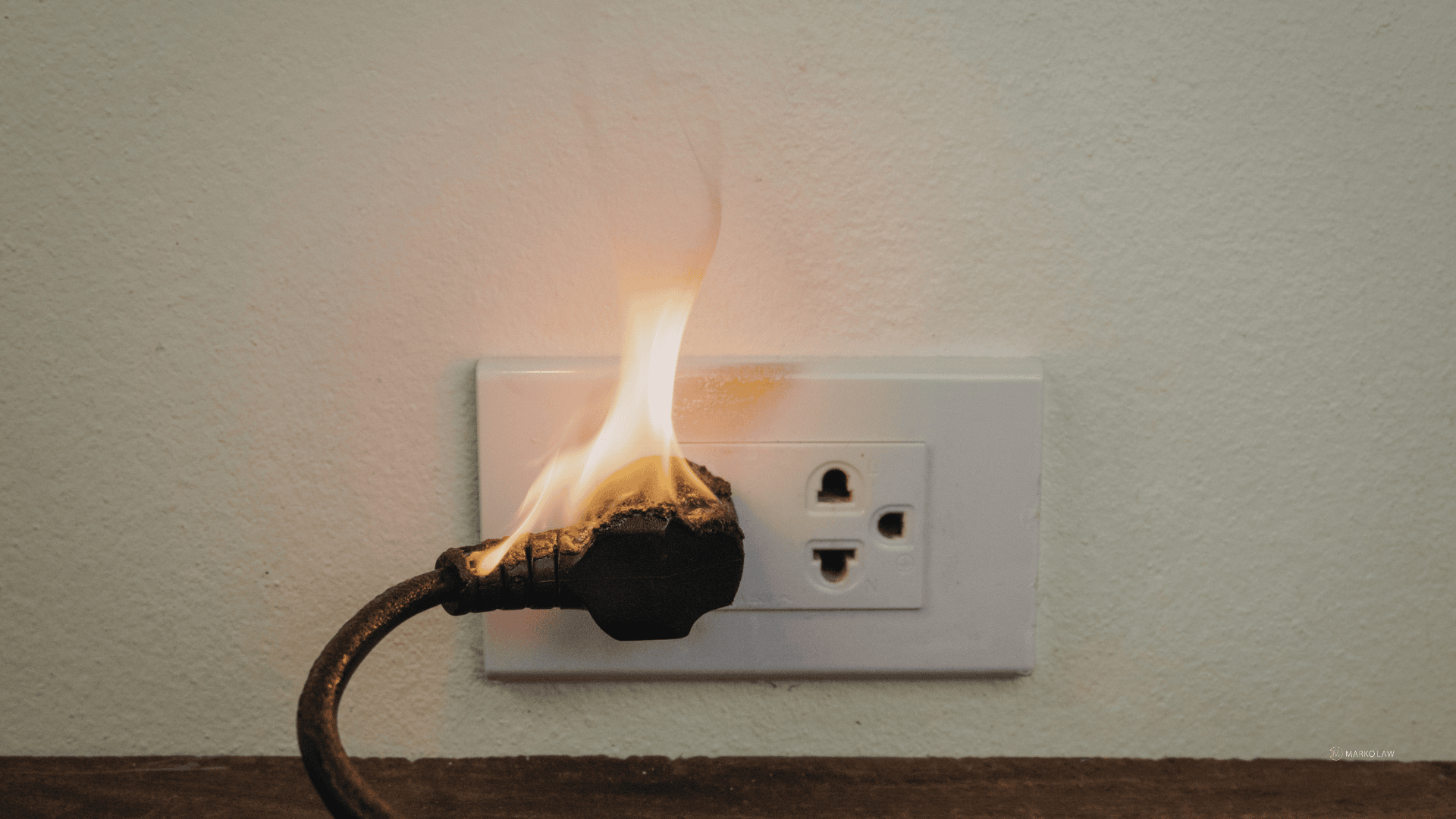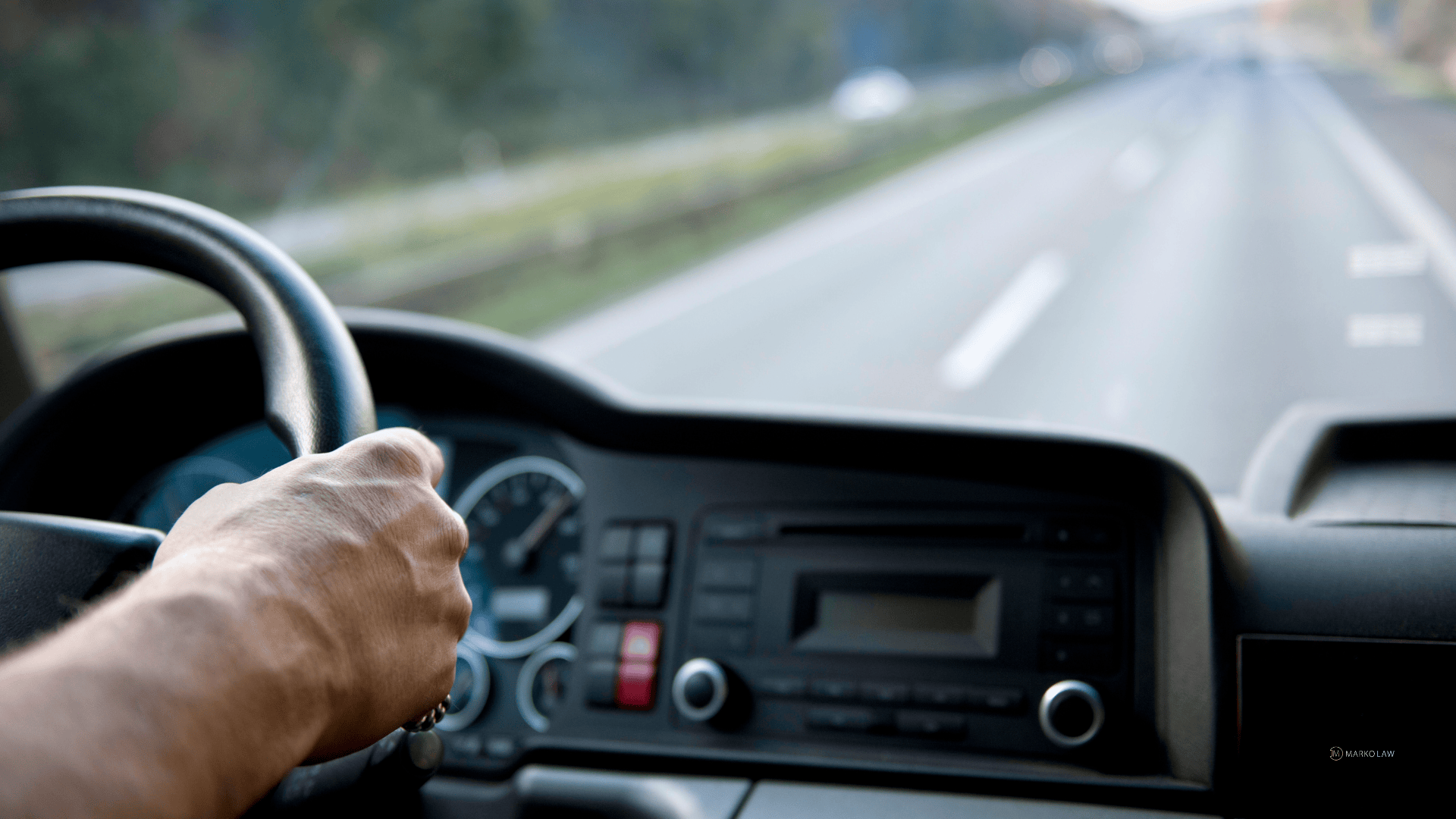Understanding Liability in Michigan Boating Accidents: What You Need to Know
Boating is deeply ingrained in Michigan's culture and lifestyle, drawing millions of residents and visitors alike to its pristine waters every year. The state boasts over 11,000 inland lakes, including the renowned Great Lakes, providing a diverse playground for boaters of all interests and skill levels. Whether it's fishing, water sports, or simply enjoying the serenity of being on the water, Michigan offers something for everyone seeking aquatic adventures.
While boating in Michigan offers unparalleled enjoyment and relaxation, it also carries inherent risks and responsibilities. Boating accidents can happen unexpectedly, resulting in injuries, property damage, and legal implications for all parties involved. Understanding liability in boating accidents is crucial for boaters to protect themselves and others on the water.
Boating Laws and Regulations in Michigan
Key Elements of Michigan's Boating Laws
Boat Registration: All motorized boats, including personal watercraft (PWC) and sailboats over a certain size, must be registered with the Michigan Department of Natural Resources (DNR). Registration ensures that boats meet safety and environmental standards and helps authorities identify owners in case of accidents or emergencies.
Operator Age and Education: Michigan law requires boaters born after June 30, 1996, to obtain a boater safety certificate to operate a motorized boat. This certificate can be obtained by completing a boating safety course approved by the DNR. Additionally, children under a certain age must be supervised by a designated adult while operating a boat.
Operating Under the Influence: Boating under the influence (BUI) of alcohol or drugs is illegal in Michigan and carries severe penalties, including fines, license suspension, and imprisonment. The legal blood alcohol concentration (BAC) limit for boaters is the same as for drivers of motor vehicles.
Equipment Requirements: Michigan law mandates that all boats carry certain safety equipment, including life jackets, fire extinguishers, navigation lights, and sound-producing devices. Boaters must ensure that their vessels are equipped with the necessary safety gear and comply with equipment standards set by state and federal regulations.
Navigational Rules: Boaters in Michigan are required to adhere to navigational rules established by the U.S. Coast Guard, including right-of-way rules, speed limits, and proper signaling. Understanding and following these rules help prevent collisions and promote safe navigation on the water.
Factors Contributing to Boating Accidents and Liability
Operator Error: Operator error, including distracted driving, speeding, reckless maneuvering, and failure to follow navigational rules, is a leading cause of boating accidents. Boat operators have a duty to operate their vessels safely and responsibly, adhering to boating laws and regulations at all times.
Alcohol and Drug Use: Boating under the influence of alcohol or drugs (BUI) is illegal in Michigan and significantly increases the risk of accidents. Impaired judgment, diminished coordination, and reduced reaction times associated with alcohol and drug use can lead to collisions, capsizing, and other accidents on the water.
Inexperienced Operators: Inexperienced or untrained boat operators may lack the skills, knowledge, and judgment necessary to navigate safely, especially in challenging or unfamiliar conditions. Boaters should undergo proper training and education to ensure competence and confidence on the water.
Equipment Malfunction: Malfunctioning or defective boat equipment, such as engines, steering systems, navigational lights, or safety gear, can contribute to accidents and injuries. Boat owners and manufacturers may be held liable for accidents resulting from equipment failure if negligence or product defects are involved.
Environmental Factors: Adverse weather conditions, rough waters, poor visibility, and navigational hazards such as rocks, sandbars, or submerged objects can increase the risk of accidents on the water. Boaters should exercise caution and adapt their behavior to changing environmental conditions to minimize risks.
Determining Liability in Boating Accidents
Legal Principles Governing Liability in Boating Accidents
Negligence: Negligence is a central legal concept in determining liability in boating accidents. Negligence occurs when a person fails to exercise reasonable care, resulting in harm to others. In the context of boating accidents, negligence may involve actions such as operating a vessel recklessly, disregarding navigational rules, or failing to maintain proper lookout.
Duty of Care: Boaters owe a duty of care to others on the water, including passengers, swimmers, and other boaters. This duty requires boaters to operate their vessels safely, adhere to boating laws and regulations, and take reasonable precautions to prevent accidents and injuries.
Proximate Cause: Proximate cause refers to the direct cause of an accident or injury. In boating accidents, determining proximate cause involves identifying the actions or conditions that directly contributed to the incident, such as a collision with another vessel or striking a submerged object.
Factors Considered in Determining Liability
Boat Operator's Actions: The actions of the boat operator play a significant role in determining liability in boating accidents. Factors such as speeding, reckless maneuvering, distraction, or operating under the influence of alcohol or drugs may indicate negligence on the part of the operator.
Equipment Malfunction: Malfunctioning or defective boat equipment can contribute to accidents and injuries. In cases where equipment failure is a factor, liability may extend to boat owners, manufacturers, or maintenance providers if negligence or product defects are involved.
Environmental Conditions: Environmental factors such as weather, visibility, water conditions, and the presence of hazards may influence liability in boating accidents. While operators cannot control environmental conditions, they are expected to exercise caution and adapt their behavior accordingly to minimize risks.
Role of Negligence and Fault in Boating Accident Cases
Comparative Negligence: Michigan follows a comparative negligence system, where each party's degree of fault is assessed in determining liability. If multiple parties share responsibility for a boating accident, their respective levels of negligence are considered, and damages may be apportioned accordingly.
Contributory Negligence: In some cases, injured parties may be found partially responsible for their own injuries due to their actions or failure to exercise reasonable care. Contributory negligence may reduce the amount of compensation awarded to the injured party based on their degree of fault.
Burden of Proof: In boating accident cases, the burden of proof lies with the party seeking compensation to establish negligence and liability. This typically involves presenting evidence, witness testimony, and expert analysis to demonstrate how the accident occurred and who is responsible.
Parties Liable in Boating Accidents
Liability of Boat Operators and Owners
Operator Negligence: Boat operators have a duty to operate their vessels safely and responsibly. Negligent actions such as speeding, reckless maneuvering, distracted boating, or operating under the influence of alcohol or drugs can lead to accidents and injuries. In such cases, the operator may be held liable for the damages and injuries resulting from their negligent conduct.
Owner Responsibility: Boat owners may also bear liability for accidents involving their vessels. Owners have a duty to ensure that their boats are properly maintained, equipped with necessary safety gear, and operated by qualified individuals. Failure to fulfill these responsibilities may result in owner liability for accidents caused by inadequate maintenance or unsafe conditions.
Liability of Passengers and Other Individuals Involved
Contributory Negligence: Passengers and other individuals involved in boating accidents may also share liability for their actions or failure to exercise reasonable care. If a passenger's behavior contributes to an accident, such as distracting the operator or engaging in reckless behavior, they may be held partially responsible for the damages and injuries resulting from the incident.
Assumption of Risk: In some cases, individuals who voluntarily participate in boating activities may assume certain risks inherent to the activity. However, this does not absolve others of their duty to provide a safe environment and operate vessels responsibly. Liability may still be assigned based on the negligent actions of operators or other parties involved.
Liability of Rental Companies and Manufacturers
Rental Company Responsibility: Boat rental companies have a duty to ensure that their vessels are properly maintained, inspected, and equipped with necessary safety gear. If a rental company fails to fulfill these obligations, resulting in an accident or injury, they may be held liable for negligence. Additionally, rental companies may be liable for accidents caused by inexperienced or unqualified renters if proper training and instruction were not provided.
Manufacturer Liability: In cases where a boating accident is caused by equipment failure or defects, such as engine malfunctions, steering system failures, or faulty safety equipment, liability may extend to the manufacturer or distributor of the defective products. Manufacturers have a duty to produce safe and reliable marine equipment, and they may be held accountable for accidents resulting from product defects or inadequate warnings.
Compensation and Legal Remedies
Types of Compensation Available to Victims of Boating Accidents
Medical Expenses: Victims of boating accidents may be entitled to compensation for medical expenses related to their injuries, including hospital bills, surgery costs, medication expenses, rehabilitation therapy, and ongoing medical treatment.
Lost Income: Boating accident injuries can result in temporary or permanent disability, preventing victims from working and earning income. Compensation may be available for lost wages, salary, bonuses, and other employment-related benefits.
Pain and Suffering: Victims of boating accidents may experience physical pain, emotional distress, and psychological trauma as a result of their injuries. Compensation may be awarded for pain and suffering, mental anguish, loss of enjoyment of life, and other non-economic damages.
Property Damage: Boating accidents can cause damage to vessels, personal property, and waterfront structures. Compensation may be available for repair or replacement costs associated with damaged property.
Wrongful Death: In cases where a boating accident results in the loss of life, surviving family members may pursue compensation through a wrongful death claim. Damages may include funeral expenses, loss of financial support, and loss of companionship.
Legal Remedies for Pursuing Compensation
Insurance Claims: Victims of boating accidents may file insurance claims with their own insurance company or the insurance provider of the at-fault party. Depending on the circumstances of the accident, compensation may be available through liability insurance, medical payments coverage, or uninsured/underinsured motorist coverage.
Personal Injury Lawsuits: In cases where insurance coverage is insufficient or disputed, victims may pursue compensation through a personal injury lawsuit against the at-fault party. This legal remedy allows victims to seek damages for their injuries and losses through the civil court system.
Negotiated Settlements: Many boating accident cases are resolved through negotiated settlements between the parties involved and their respective insurance companies. Settlement agreements may provide compensation for medical expenses, lost income, pain and suffering, and other damages, without the need for protracted litigation.
Legal Representation: Seeking the assistance of an experienced personal injury attorney is essential for navigating the legal process and maximizing the chances of obtaining fair compensation in boating accident cases. Attorneys can provide valuable guidance, advocacy, and representation throughout the claims process or litigation.

.jpeg)







.svg)








